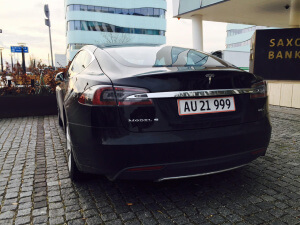First the banks, now the oil companies: BP makes worst annual loss in 20 years
Last year, and the year that preceded, London’s interbank FX desks were plagued by losses, low market volatility, slow corporate performance and regulatory fines along with class action civil lawsuits for FX benchmark rigging that sent their balance sheets into the red in some cases, and made their board members take a close look at […]

Last year, and the year that preceded, London’s interbank FX desks were plagued by losses, low market volatility, slow corporate performance and regulatory fines along with class action civil lawsuits for FX benchmark rigging that sent their balance sheets into the red in some cases, and made their board members take a close look at moving operations en masse away from creaking Europe to the urbane and opportune Far East.
If 2014 and 2015 were the ‘years of the banks’ in terms of corporate losses within trading desks, this year is the turn of the commodities industry as the plummeting price of oil is now beginning to take its toll on suppliers.

Global petrochemical giant BP plc (LON:BP) – formerly known as British Petroleum – has reported its worst annual loss in 20 years, with a deficit of $6.5 billion for the year 2015.
The company is now firmly ensconsed in a restructuring process, which is very necessary in these times of plummeting oil prices, however the cost of restructuring is a double-edged sword as the firm is likely to be subjected to a cost of $1 billion to make its operations more efficient.
Aside from the market and commercial aspects, there are other casualties too, as BP has confirmed that 7,000 jobs will be cut, which is comprised of 3,000 at its downstream divisions which include oil refining, marketing and distribution which will be laid off in 2017, and a reduction of 4,000 staff from its upstream business during 2016.
One of the very concerning aspects of the commercial effect on BP that the falling price of oil is having is that BP stock is used by many pension funds as a mainstay, therefore should the company fall into difficulties, it could create financial instability within life assurance and pension companies.
The losses made in 2015 contrast greatly to that of the previous year, having almost doubled. The loss made in 2015 of $6.5 billion dwarfs that of 2014 which was $3.8 billion.

Oil prices have collapsed over recent months, reducing from $115 per barrel which admittedly was an over-inflated value during summer 2014, down to just under $34 per barrel today. Some analysts say oil may reach the $10 per barrel mark.
Oil is rather unlike other tradable commodities such as precious metals or raw materials, in that those are intrinsic assets which can be held and almost perform the same function as bearer bonds – Gold, for example, has historically always been a very stable currency substitute in times of geopolitical difficulties or financial crises, whereas oil and other petrochemical products are a means of powering industry and domestic homes and vehicles.
The golden days of oil behind us?
This gives rise to another potential factor that could influence the price further downwards, that being the increasing move away from petrochemical products into electricity generated in nuclear power stations, solar energy and electric vehicles.
Those who attended the iFXEXPO in Hong Kong last week, (ie most of the FX industry!) will probably have noticed the proliferation of Tesla Model S electric cars that adorn the entirety of Hong Kong.
In Denmark two weeks ago, the affluent streets of Copenhagen suburb of Hellerup, home of Saxo Bank, were lined with electric vehicles which ranged from the Nissan Leaf, through to the 700bhp Tesla Model S P85D.
In parts of Silicon Valley such as Mountain View and Palo Alto, where fintech development companies dominate the skyline, companies are installing electric vehicle charging stations in their staff parking lots.

In Manhattan, New York, I have been aware of the silence in parking garages as the more than occasional Chevrolet Volt drifts past. Taxis are no longer Ford Crown Victorias but are hybrid IC/electric Ford Escapes and Toyota Camrys which use less than half of the fuel of their predecessors the Big Apple’s urban environment.
A trip outside of London last week caught my attention in that farmers in rural Britain have been diversifying by renting their fields to solar energy providers, with giant, greenhouse-like rows of solar panels occupying large areas of land, selling energy back to the National Grid.
Petrochemical products used in manufacturing are still in widespread demand, however the North Sea Oil off the coast of Aberdeen in Scotland which used to be freighted to China to make polymerized plastic for producing consumer durables ranging from ballpoint pen tops to injection moulded food containers is no longer part of the supply chain as Russia and the Far East now look after their own hydrocarbon ecosystem.
Because, unlike many other commodities and raw materials, oil is used as a fuel, a manufacturing component and a resource which provides energy to the internal combustion engine which is rapidly on its way to being superseded, the factors that can affect its price as an instrument are different to those that affect other commodities.
The old adage ‘evolution is better than revolution’ may certainly ring true for the large oil companies this year.









